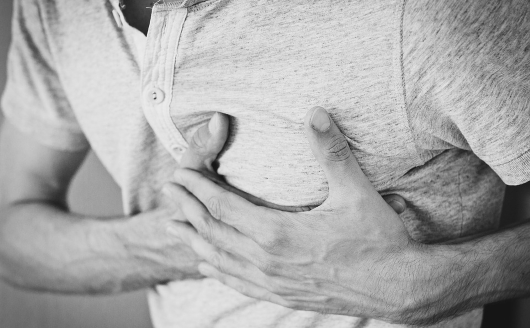
Stroke is one of the most devastating ailments one can suffer. What makes it even more tragic is the fact that in most cases, managing your blood pressure or taking other preventive steps can help avert it. While nobody can be able to predict with precision when a stroke is likely to strike, there is no doubt that strokes don’t just come. This is because there are several factors that predispose a person to a stroke. Some of these factors are natural and there isn’t much one can do about them while others are triggered by lifestyle.
Some natural factors that put people at risk of suffering stroke include family history and age. Though there are some underlying conditions that can place you at risk of suffering a stroke, there are some steps that can be taken towards minimizing those chances. If you have already had a mini-stroke, taking steps towards lowering your risk isn’t an option and you need to find a specialist doctor on websites like xpertdox to get support on how to do this. In the meantime, here are practical lifestyle changes you can make to reduce your chances of suffering a stroke:
1. Manage your weight
If you are obese or you weigh more than you out to, managing your weight could mean losing those extra pounds. This doesn’t mean that you get thin. Depending on your body mass index, you might only need to lose between five and ten percent of your weight to get back in shape. Weight management isn’t only for people who carry extra pounds. Even a person who has an ideal weight needs to manage it to ensure they don’t cross over and become overweight. Managing your weight improves your cholesterol levels and reduces your blood sugar and pressure.
2. Engage in physical exercise
Physical exercise is necessary for lowering your risk of suffering a heart attack or even a stroke. This doesn’t have to be highly engaging, consider doing something moderate like swimming or brisk walking. Do this for about half an hour and get your heart pumping for about five days each week. For the remaining two days, engage in activities such as weight lifting. You may want to break physical activity routines into smaller chunks so you take fifteen minute walks each morning and over lunch breaks.
3. Get adequate sleep
Try as much as possible to sleep for about nine hours. A study conducted on 70,000 women by Harvard University shows that people who sleep for less than 7 hours each night are at a higher risk of developing heart disease. This is because sleeping less causes the blood pressure to rise and the stress hormone increases. It also has an impact on sugar levels in the blood.4. Moderate alcohol intake
While drinking alcohol can help reduce your risk of experiencing a stroke, it can do so only to a certain degree. Research shows that having one drink each day lowers the risk of getting a stroke. However, taking two or more drinks each day can increase the risk of a stroke significantly. As such, aim at moderating your alcohol intake by limiting your drink to one glass per day. Opt for red wine as opposed to white wine because red wine has resveratrol, a compound that is known to help with protecting the brain and the heart. Also, pay attention to portion sizes because a standard drink is just about a 5-ounce glass for wine, 1.5 ounce for hard liquor and 12 ounce for beer.
5. Eat fish once every week
Fish is good for your heart health, whether you have it baked, gilled, sautéed or roasted. A 2002 study shows that women who take fish one day every week are less likely to suffer heart disease compared to those who only eat fish once each month. There are other studies that have made similar conclusions for men as well. Consuming fish on a regular basis also reduces the risk of experiencing irregular, rapid heartbeats, a condition known as atrial fibrillation, which is a leading cause of deaths that occur suddenly.
6. Avoid smoking
Cigarette smoking is among the leading factors that put you at risk of developing heart disease and suffering a stroke. The reality is, smoking actually makes all the other risk factors of stroke much worse. If you are a person who smokes, you need to quit as nothing else you do can help you reduce your risk of stroke except stopping. You will save your family and friends from secondhand smoke that can put them in harm’s way by quitting. You may want to discuss how to go about quitting with your doctor to get started as soon as possible. Also, ensure that you have a good support system of friends and family to ensure your plan of quitting is successful.